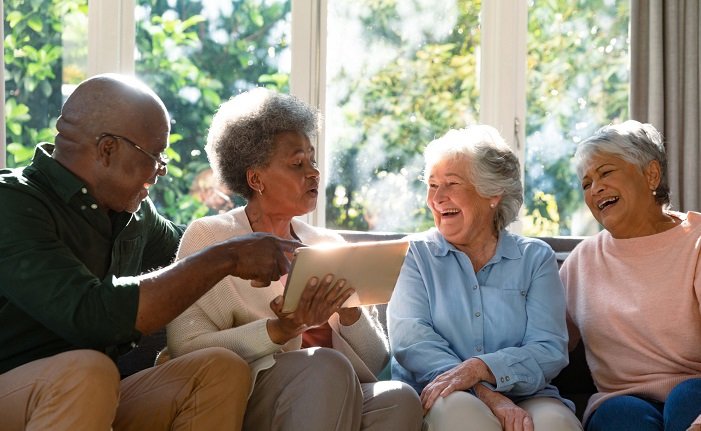
The Older Persons Commission (OPC) is a vital organization dedicated to addressing the needs, rights, and welfare of the elderly population. As societies across the globe continue to age, the role of the OPC becomes increasingly significant in shaping policies and programs that ensure the well-being and dignity of older persons. This article provides an overview of the OPC, its recent developments, and its impact on the elderly community.
Introduction to the Older Persons Commission
The OPC is an independent body established to advocate for and protect the rights of older persons. It serves as a watchdog, policy advisor, and advocate, ensuring that the concerns of the elderly are addressed at all levels of government and society.
Key Functions of the OPC:
- Policy Advocacy: The OPC advocates for policies and legislation that promote the welfare of older persons.
- Research and Data Collection: The commission conducts research to gather data on the living conditions and needs of the elderly.
- Awareness and Education: It raises awareness about the issues facing older persons and educates the public and policymakers.
- Support Services: The OPC provides support services and resources for older persons and their caregivers.
Recent Developments and News
1. Launch of the National Strategy for Older Persons
The OPC recently played a pivotal role in the launch of the National Strategy for Older Persons, a comprehensive plan aimed at improving the quality of life for the elderly.
Key Points:
- Healthcare: The strategy emphasizes the need for accessible and affordable healthcare services tailored to the needs of older persons.
- Social Inclusion: It promotes social inclusion and participation of older persons in community activities.
- Economic Security: The strategy addresses issues of economic security, including pensions and employment opportunities for older persons.
2. Implementation of Age-Friendly Communities
In collaboration with local governments, the OPC has been actively promoting the concept of age-friendly communities. These are environments that enable older persons to live safely, enjoy good health, and stay involved in their communities.
Key Points:
- Infrastructure: Improvements in infrastructure, such as accessible transportation and housing.
- Social Services: Enhanced social services that cater to the needs of older persons.
- Community Engagement: Programs that encourage the active participation of older persons in community life.
3. Awareness Campaigns and Education Programs
The OPC has launched several awareness campaigns and education programs to highlight the issues faced by older persons and to promote positive attitudes towards aging.
Key Points:
- Public Awareness: Campaigns to educate the public about the rights and needs of older persons.
- Training for Caregivers: Programs to provide training and support for caregivers of older persons.
- Elder Abuse Prevention: Initiatives to prevent elder abuse and ensure the safety and dignity of older persons.
4. Research and Data Initiatives
To inform policy and advocacy efforts, the OPC conducts extensive research on various aspects of aging and the needs of older persons.
Key Points:
- Living Conditions: Research on the living conditions and quality of life of older persons.
- Health and Well-being: Studies on the health and well-being of the elderly population.
- Policy Impact: Analysis of the impact of existing policies and programs on older persons.
5. Collaboration with International Organizations
The OPC collaborates with international organizations to share best practices and to align its efforts with global standards for the welfare of older persons.
Key Points:
- Global Networks: Participation in global networks and forums focused on aging and the elderly.
- International Standards: Adoption of international standards and guidelines for the protection and welfare of older persons.
- Exchange Programs: Initiatives for knowledge exchange and capacity building with other countries.
Impact of the OPC’s Efforts
The efforts of the OPC have had a significant impact on the lives of older persons. Here are some of the key outcomes:
Improved Quality of Life
Through various initiatives and policies, the OPC has contributed to improving the overall quality of life for older persons. This includes better access to healthcare, increased social inclusion, and enhanced economic security.
Empowerment and Advocacy
The OPC has empowered older persons to advocate for their rights and to participate actively in society. It has provided a platform for the elderly to voice their concerns and to influence policy decisions.
Increased Awareness and Education
The awareness campaigns and education programs conducted by the OPC have helped to change societal attitudes towards aging and older persons. There is now greater recognition of the contributions and needs of the elderly.
Stronger Support Systems
The OPC has strengthened support systems for older persons, including healthcare, social services, and caregiver support. This has ensured that older persons receive the care and assistance they need to live dignified and fulfilling lives.
Conclusion
The Older Persons Commission plays a crucial role in advocating for the rights and welfare of older persons. Through its various initiatives, policies, and programs, the OPC has made significant strides in improving the quality of life for the elderly. As the population continues to age, the importance of the OPC’s work will only grow, ensuring that older persons are respected, valued, and supported in all aspects of their lives.





